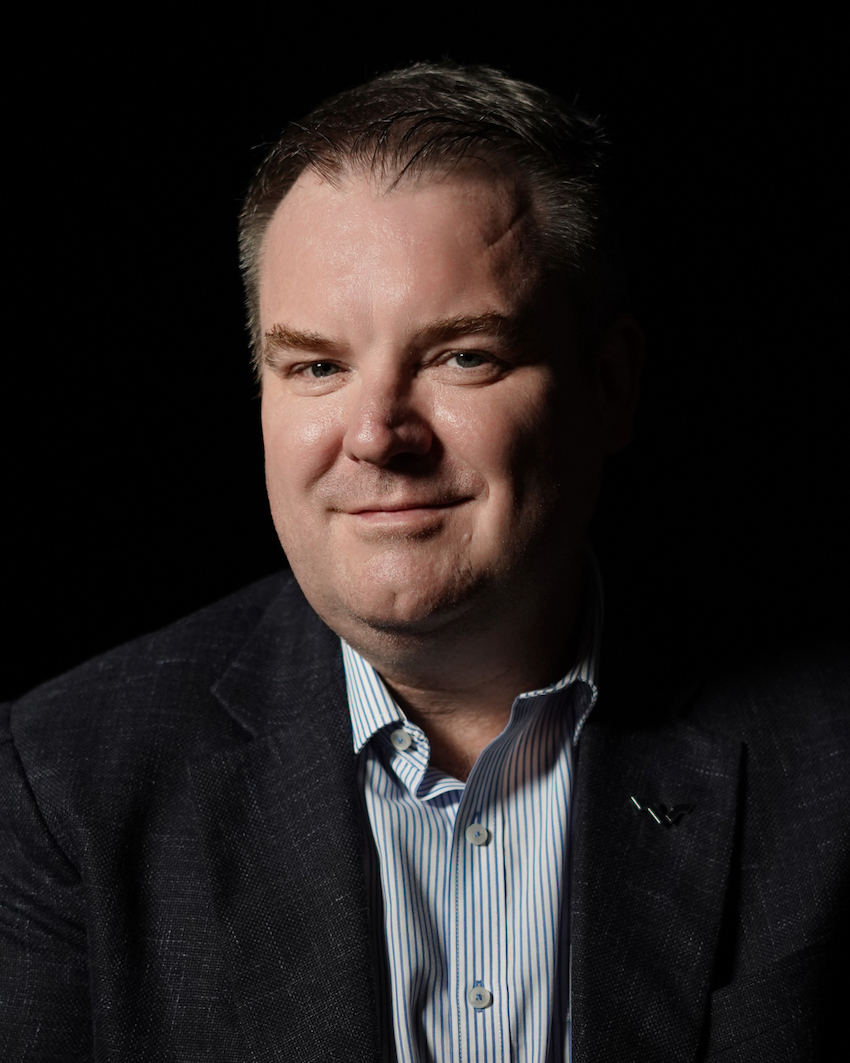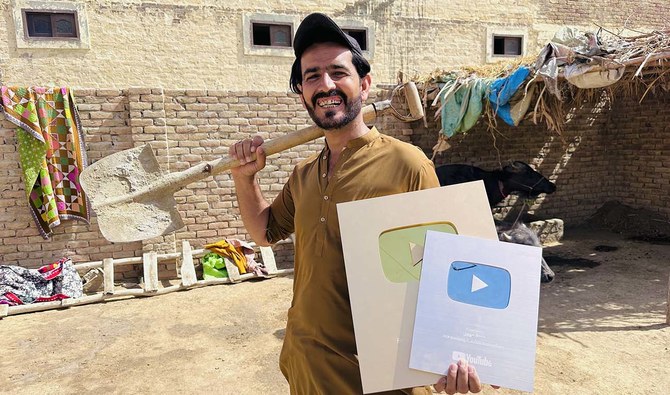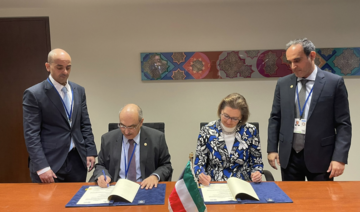PARIS – A row over Covid-19 vaccine access escalated Friday, with France accusing Britain of “blackmail” in its dealings with the EU, and Russia and China of misusing vaccines to boost their foreign policy clout.
French Foreign Minister Jean-Yves Le Drian’s salvo came a day after the European Union threatened to ban pharma firms from exporting coronavirus vaccines to the UK and other well-supplied countries until they make good on their promised deliveries to the bloc.
British-based AstraZeneca would likely be the first target of any such restrictions.
The UK was under pressure because it lacked doses for second vaccine shots, said Le Drian.
“The United Kingdom has taken great pride in vaccinating well with the first dose except they have a problem with the second dose,” he told France Info radio.
“You are vaccinated when you have had both doses. Today there are as many people vaccinated with both in France as the United Kingdom,” he added.
According to data compiled by AFP, Britain has administered two vaccine doses to 4.1 percent of its population, against 3.9 percent overall in France.
“You can’t be playing like this, a bit of blackmail, just because you hurried to get people vaccinated with a first shot, and now you’re a bit handicapped because you don’t have the second one,” Le Drian added.
Le Drian did not say what precisely constituted the alleged British blackmail, but Prime Minister Boris Johnson had warned earlier in the week that trade “blockades” would chill investment.
“I would just gently point out to anybody considering a blockade, or interruption of supply chains, that companies may look at such actions and draw conclusions about whether or not it is sensible to make future investments in countries where arbitrary blockades are imposed,” he told lawmakers.
The latest EU-UK row centers on an AstraZeneca plant in the Netherlands, which Johnson’s government claims as part of the British vaccine supply chain.
Any suggestions of British vaccine selfishness have found robust responses in British media, with The Times accusing President Emmanuel Macron of “evident anglophobia” and “petty jingoism,” and The Sun calling him “arrogant.”
EU chief Ursula von der Leyen’s stark warning of a vaccine export stop came after a video summit of all 27 EU leaders and stoked fears that cross-Channel rivalry could damage global efforts to combat the pandemic.
France has made clear it sees vaccine policies feeding not just European, but global competition for influence.
“We are looking at a new type of world war,” Macron said after the EU summit. “We are looking in particular at Russian and Chinese attacks and attempts to gain influence through the vaccine.”
This situation, he said, meant the EU had to strengthen its own vaccine capabilities.
His foreign minister on Friday also accused Russia and China of using their vaccines to gain influence abroad even before they had finished inoculating their own populations, a claim rejected by Moscow.
“We absolutely disagree with the fact that both Russia and China are waging some kind of war,” Kremlin spokesman Dmitry Peskov told journalists.
“And we absolutely disagree with the fact that Russia and China are using the coronavirus pandemic and vaccines as tools of influence.”
Russia and China have, for their part, accused Western countries of hoarding vaccines to the detriment of poor nations.
Russia has applied to Europe’s medicines regulator EMA to gain approval for the use of its Sputnik V vaccine in the 27-nation bloc, but is still waiting for an answer.
The German government said Friday that it would be open to using Sputnik V once it had EMA approval.
In the meantime the developers are pushing Sputnik V — named after the Soviet-era satellite — in other regions and say the jab has been registered in 55 countries around the world.
Vaccine row escalates as France accuses UK of ‘blackmail’
https://arab.news/gnknu
Vaccine row escalates as France accuses UK of ‘blackmail’

- Latest EU-UK row centres on an AstraZeneca plant in the Netherlands, which Boris Johnson's government claims as part of the British vaccine supply chain
- Macron said after the EU summit “We are looking in particular at Russian and Chinese attacks and attempts to gain influence through the vaccine”
Smashing barriers — table tennis helping rise of sporting events in the Middle East

- WTT chief executive writes exclusively for Arab News about the impact of Saudi Smash 2024
JEDDAH: As the Middle East continues its economic transformation, its rapidly growing sports industry stands as a prominent example of this dynamic shift. Events like the Saudi Smash 2024 in Jeddah exemplify the region’s ambition to host major international sports competitions; they also underscore a broader trend toward creating immersive, engaging experiences for a diverse audience.
A reflection of regional growth
Saudi Smash 2024 is not merely an international table tennis event; it reflects a vigorous push into the sports sector, which is becoming a cornerstone of the Kingdom’s Vision 2030 strategy. In 2022, the sports tourism sector emerged as a booming $600 billion industry in the Middle East, anticipated to grow even further. The sports industry in the region is expected to expand by 8.7 percent by 2026, sharply contrasting with the global industry’s slower growth rate of 3.3 percent. Studies suggest that, in some Middle Eastern countries, a halo effect boosts the tourism and hospitality industry by up to 30 percent.
But such mega sporting events do not only drive immediate economic uplift through increased tourism and consumer spending. The preparation and execution of an event like Saudi Smash 2024 involve numerous local stakeholders from various industries, thereby distributing economic benefits across a broad spectrum of the local economy. They also promote long-term economic stability by creating jobs and spurring infrastructural developments.
A need for enhanced fan engagement
Recognizing the shifting preferences of younger generations, the Middle East is tailoring its sporting events to cater to Generation Z and Alpha spectators who prefer shorter, more action-packed formats. Similar to what can be expected at a World Table Tennis Saudi Smash, these events are no longer just about the sport; they are multimedia, multifaceted experiences that incorporate advanced digital technologies — such as augmented reality and real-time data analytics — to offer personalized and interactive fan engagement. This shift is critical as fan attraction and retention now hinge on delivering more than just brand loyalty; young fans desire a voice in decision-making processes and seek bespoke experiences that resonate with their digital-native sensibilities.

The power of sports sponsorships
The global sports sponsorship market is poised to grow from $66 billion in 2022 to nearly $108 billion by 2030, and the flourishing sports scene in the Middle East provides fertile ground for brands to market themselves to millions of consumers in the region. An event like Saudi Smash offers regional and global brands a platform to enhance visibility and engage with diverse audiences. The power of sponsorship, in its traditional form, is undeniable. It offers brands an unparalleled opportunity to connect with specific audience segments, fostering emotional bonds, driving brand loyalty, and catalyzing sales. Sponsorship, long-standing in the world of marketing, has entered a transformative era. Sports event partnerships have evolved from mere logo placements and brand affiliations to deeper, more strategic partnerships with an increased focus on values, social impact, and long-term engagement. These collaborations not only drive direct revenue but also build brand associations with health, vitality, and global connectivity, aligning perfectly with corporate goals of broader market penetration and consumer connection.
The evolution of table tennis
The establishment of WTT has been instrumental in transforming table tennis into a major player on the global sports stage. By introducing high-stakes competitions and enhancing broadcast quality, WTT events like the Saudi Smash exemplify how the sport is not only elevating its profile but also integrating seamlessly into the broader context of international sporting events. These events showcase world-class table tennis talent and craft a spectator experience that is globally engaging and accessible. They not only captivate new fans but also attract brand partnerships, further embedding table tennis into the global sports narrative.
Looking to the future
The Middle East’s journey towards becoming a global sports destination is full of promise, bolstered by continuous investments in technology and infrastructure. The transformation of sporting events in the region is emblematic of broader ambitions on the world stage. Through strategic innovation and proactive engagement, the Middle East is not just participating in but is actively leading the global sports dialogue. Events like the WTT Saudi Smash are in place to support this journey, setting new benchmarks for what a sporting event can offer and inviting the world to witness the rise of a new era in global sports prominence.
• Steve Dainton is chief executive of World Table Tennis
Pakistan to face India on Oct. 6 in women’s T20 World Cup clash

- ICC Women’s T20 World Cup to run from Oct. 3-20 in Dhaka and Sylhet
- Pakistan are placed in Group A with Australia, India, New Zealand, Qualifier 1
DHAKA: England will face South Africa in the opening match of the ICC Women’s Twenty20 World Cup to be held in Bangladesh later this year, the International Cricket Council announced on Sunday.
The event will run from October 3 to 20 in the capital Dhaka and the northeastern city of Sylhet, with warm-up matches starting on September 27.
Hosts Bangladesh and the top six teams from the previous edition in South Africa — Australia, England, New Zealand, South Africa and the West Indies — qualified automatically for the tournament, with Pakistan joining them as the next best ranked team.
Ireland, the UAE, Sri Lanka and Scotland are in contention for the remaining two places, with the semifinals of the qualifying tournament being held in the UAE.
Six-times winners and current world number one Australia will play in Group A alongside India, New Zealand, Pakistan and a Qualifier 1.
Neighbours and rivals India and Pakistan will face off on October 6.
Group B will feature South Africa, Bangladesh, England, West Indies, and Qualifier 2.
“Over the last six to seven years we have seen women’s cricket grow exponentially,” ICC chief executive officer Geoff Allardice said at the announcement of the fixture list and trophy unveiling in Dhaka.
“This is going to be a very special tournament,” he added.
It will be the ninth edition of the tournament, with Bangladesh previously hosting in 2014.
From bricks to clicks, Pakistani laborer achieves fame and financial independence via YouTube videos
From bricks to clicks, Pakistani laborer achieves fame and financial independence via YouTube videos

- Riaz Ali who built homes working as a manual laborer initially began making videos on TikTok
- 30-year-old made his YouTube channel in 2022 and has since become an online sensation
SANGHAR: Riaz Ali, 30, would stack brick over brick and bond them with mortar, a thick paste of cement, water and sand, as he built homes and did other manual labor work for years in the southern Pakistani district of Sanghar.
In 2022, he started making engaging video content that included throwing and catching mortar, targeting a tall pole with a motorbike tire and some prank videos, which have not only turned the daily wager into a millionaire but also a digital sensation.
Ali, better known as Riaz Jaan, initially posted videos on TikTok after which a friend advised him to post them on YouTube. He created his YouTube channel in April 2022 which was monetized only nine months later.
He now earns 20 times more than what he used to make two years ago.
“As a laborer, my wage was Rs1,500 [per day]. In a month, I used to earn Rs30,000 or Rs35,000 ($107-$125) as it was an inconsistent livelihood,” he told Arab News on Thursday.
“From YouTube, I earn more than Rs500,000 ($1,795) per month.”
Ali, who has 1.9 million subscribers on YouTube, 439,000 followers on TikTok and 359,000 on Facebook, says his content went viral through YouTube Shorts — vertical videos that have a duration of 60 seconds or less.
“My first earnings on YouTube were Rs800,000 ($2,872). I had never seen such a huge amount of money before. My family and I were so delighted that such a significant sum had come into my hands,” he said.
“After YouTube, my life changed. As they say, when Allah gives, He gives abundantly.”
Ali, who started working as a daily wager in 2010, has left his laboring job since becoming a digital sensation but still makes videos related to his former work.
He has also enabled the sharing of his viral videos on YouTube, helping several other content creators have engagement on their channels.
“There are people from various countries who repost my content and videos on their channels, and their channels have also been monetized,” he said. “I have granted them permission.”
This success has helped Ali buy two residential plots and two buffaloes, send his children to better schools, and take care of his family in a much better way. The 30-year-old has also bought a mobile phone worth Rs500,000, which he uses to create quality video content.
But Ali has not kept his success to himself and has passed his digital skills on to his family, friends and whoever he found willing to learn.
“Besides myself, my brother also has a YouTube channel where he posts labor-related videos. His channel has also been monetized,” he told Arab News.
“Additionally, I have two sons, Ali Ayan and Zeb Zohan, whose channel is also monetized.”
He says neither his brother’s nor his sons’ channels gained traction in the beginning and so, he began posting his content on their channels, which helped them gain momentum. Consequently, both channels were monetized.
The 30-year-old offers free, informal consultancy services to youth, who are interested in establishing their own YouTube channels, in his hometown of Jhol in Sanghar. He says he has around 50 to 60 youngsters, who either have monetized channels or are actively working toward them.
“I guide them all, and they follow my directions,” Ali said.
Ali Raza, a farmer and a friend of Ali, got inspired by seeing his friend earn through YouTube. Raza created his own account on the video-sharing website, where he posts funny videos.
“Since Riaz Jaan is teaching others, I also joined his group. It’s been four months since my YouTube channel has been monetized,” Ali Raza told Arab News.
“I earn between Rs25,000 and Rs30,000 ($89-$107) per month.”
Driver dies after crashing into White House perimeter gate, Secret Service says

- The driver was not immediately identified
WASHINGTON: A driver died after crashing a vehicle into a gate at the White House Saturday night, authorities said.
The driver was found dead in the vehicle following the crash shortly before 10:30 p.m. at an outer perimeter gate of the White House complex, the US Secret Service said in a statement.
Security protocols were implemented but there was no threat to the White House, the agency said.
The driver was not immediately identified.
The Secret Service will continue to investigate the matter, while turning over the fatal crash portion of the investigation to the Washington Metropolitan Police Department, the agency said.
Kuwait’s non-oil sector steadies in April, UAE maintains growth in April

RIYADH: Non-oil activities in Kuwait demonstrated steady growth in April, buoyed by effective advertising and competitive pricing, supporting the expansion in new orders, an economy tracker revealed.
According to the latest Kuwait Purchasing Managers’ Index by S&P Global, the country’s PMI dipped to 51.5 in April from 53.2 in March.
A PMI reading above 50 indicates growth in the non-oil private sector, while readings below 50 signal contraction.
The report noted that job creation scaled back for the first time in eight months as companies aimed to minimize costs, while the rate of purchase price inflation was one of the sharpest on record in April.
According to the survey, this reduction in workforce numbers, coupled with a shortage of available raw materials, led to a buildup of backlogs of work in April.
“The slowdown in growth seen in April is not cause for immediate alarm as Kuwaiti firms were still able to generate solid expansions in new business and output at the start of the second quarter,” said Andrew Harker, economics director at S&P Global Market Intelligence.
The report mentioned that output prices increased only modestly in April, as companies endeavored to limit price hikes to customers by offering discounts.
Furthermore, input costs also surged sharply in April, driven by a marked rise in purchase prices.
“Growth continued to be predicated, at least in part, on competitive pricing. This put pressure on margins given rapidly increasing input costs, however. In a bid to limit expenses, firms cut back on employment numbers, thereby restricting the extent to which they were able to fulfill orders,” said Harker.
He added: “There are clearly risks that this will prove unsustainable and so companies will be hoping that either cost inflation moderates or that demand strengthens sufficiently to reduce the need for discounting in the months ahead.”
UAE maintains strong growth
Meanwhile, in another report released last week, S&P Global revealed that the UAE’s non-oil private sector maintained robust output growth in April. The Emirates’ PMI reached 55.3, down from 56.9 in March but remained firmly above the 50 mark, indicating expansion.
According to the survey, this slowdown was attributed to floods and rains that hit the country in April.
“April data highlighted strong overall growth across the UAE non-oil private sector as buoyant domestic economic conditions helped to support long-term business expansion plans. However, the latest survey signaled a sharp slowdown in new business gains in the wake of heavy rainfall and flooding,” said Tim Moore, economics director at S&P Global Market Intelligence.
He added: “Companies operating in Dubai recorded a particularly acute loss of sales momentum as adverse weather disruptions hit business and consumer spending.”
S&P Global revealed that backlogs of work increased considerably in April, attributed to temporary business disruptions and heightened pressure on operating capacity.
The report added that non-oil businesses in the UAE remained optimistic about future output over the next year, although the level of optimism eased, dropping to its lowest reading since January.
“Non-energy businesses are nonetheless still highly upbeat about their year ahead growth prospects. Many commented on strong sales pipelines and swift recovery from the impact of heavy rainfall,” noted Moore.
According to the survey, higher levels of employment were recorded in April, driven by new project starts and resilient demand conditions.















